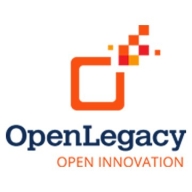

OpenLegacy and Postman Enterprise are competing products in API management and integration. OpenLegacy holds the upper hand for enterprises focused on legacy systems integration, while Postman Enterprise offers a comprehensive feature set ideal for collaborative API development.
Features:OpenLegacy stands out for its capability to seamlessly integrate with legacy systems and adapt to complex enterprise environments. It supports the creation of hundreds of APIs swiftly, offering flexibility with solutions tailored to diverse legacy needs. Postman Enterprise excels in providing a robust collaborative environment, enhanced API testing frameworks, and rich documentation capabilities, making it a favored tool for development teams focusing on API-centric workflows.
Room for Improvement:OpenLegacy could enhance its support for API testing frameworks and improve its collaborative capabilities for development teams. Streamlining its documentation process could further benefit users. Postman Enterprise may benefit from better support for complex legacy systems, enhanced integration with diverse enterprise environments, and reducing complexity in its comprehensive feature set to make it more accessible for all user levels.
Ease of Deployment and Customer Service:OpenLegacy provides a straightforward deployment process suitable for intricate enterprise architectures, with robust customer support focused on legacy integration. Postman Enterprise offers seamless SaaS deployment, supported by extensive API workflow support channels, ideal for agile and API-centric teams needing prompt customer assistance.
Pricing and ROI:OpenLegacy requires an initial setup cost but promises ROI by efficiently handling complex legacy environments, making it attractive for enterprises seeking cost-effective solutions. Postman Enterprise, despite its higher price point, offers substantial ROI through productivity gains in API development and testing, appealing to teams seeking comprehensive API tools for collaboration.
| Product | Market Share (%) |
|---|---|
| Postman Enterprise | 1.5% |
| OpenLegacy | 0.8% |
| Other | 97.7% |
| Company Size | Count |
|---|---|
| Small Business | 17 |
| Midsize Enterprise | 9 |
| Large Enterprise | 41 |
OpenLegacy helps organizations quickly launch innovative digital services by extending their core back-end systems to the web, mobile and cloud in days or weeks versus months. Our microservice-enabled API integration and management software quickly reduces project backlog by automating and accelerating microservices and API creation, deployment, testing and management from core applications, mainframes and databases. Together, business and IT teams can quickly, easily and securely meet consumer, partner or employee demands for digital services without modernizing or replacing core systems, and without special programming skills or invasive changes to existing systems and architectures. OpenLegacy is designed for ongoing management of microservices APIs and is based on open standards, so our software plays nice with your current technology stack and supports agile, DevOps and continuous development. Learn why leading companies choose OpenLegacy at www.openlegacy.com.
Postman Enterprise provides API testing capabilities with features like automation, integration, and shared environments, enhancing efficiency for REST and SOAP APIs. Teams benefit from its intuitive interface and support for automation and scripting.
Postman Enterprise is designed for API testing, supporting REST and SOAP APIs to enhance manual and automated testing. It offers endpoint validation, unit and integration testing, and data-driven testing. This platform is valued for its easy setup, flexibility in automation, and scripting, enabling collaborations through shared collections and generating reports. However, users find room for improvement in automation, integration with platforms, SOAP API testing, and collection management.
What are the key features of Postman Enterprise?In industries relying on API development, Postman Enterprise aids in creating robust testing environments. Whether technology, finance, or healthcare, teams leverage its data-driven testing capability and collaboration features for comprehensive and accurate testing outcomes.
We monitor all API Management reviews to prevent fraudulent reviews and keep review quality high. We do not post reviews by company employees or direct competitors. We validate each review for authenticity via cross-reference with LinkedIn, and personal follow-up with the reviewer when necessary.